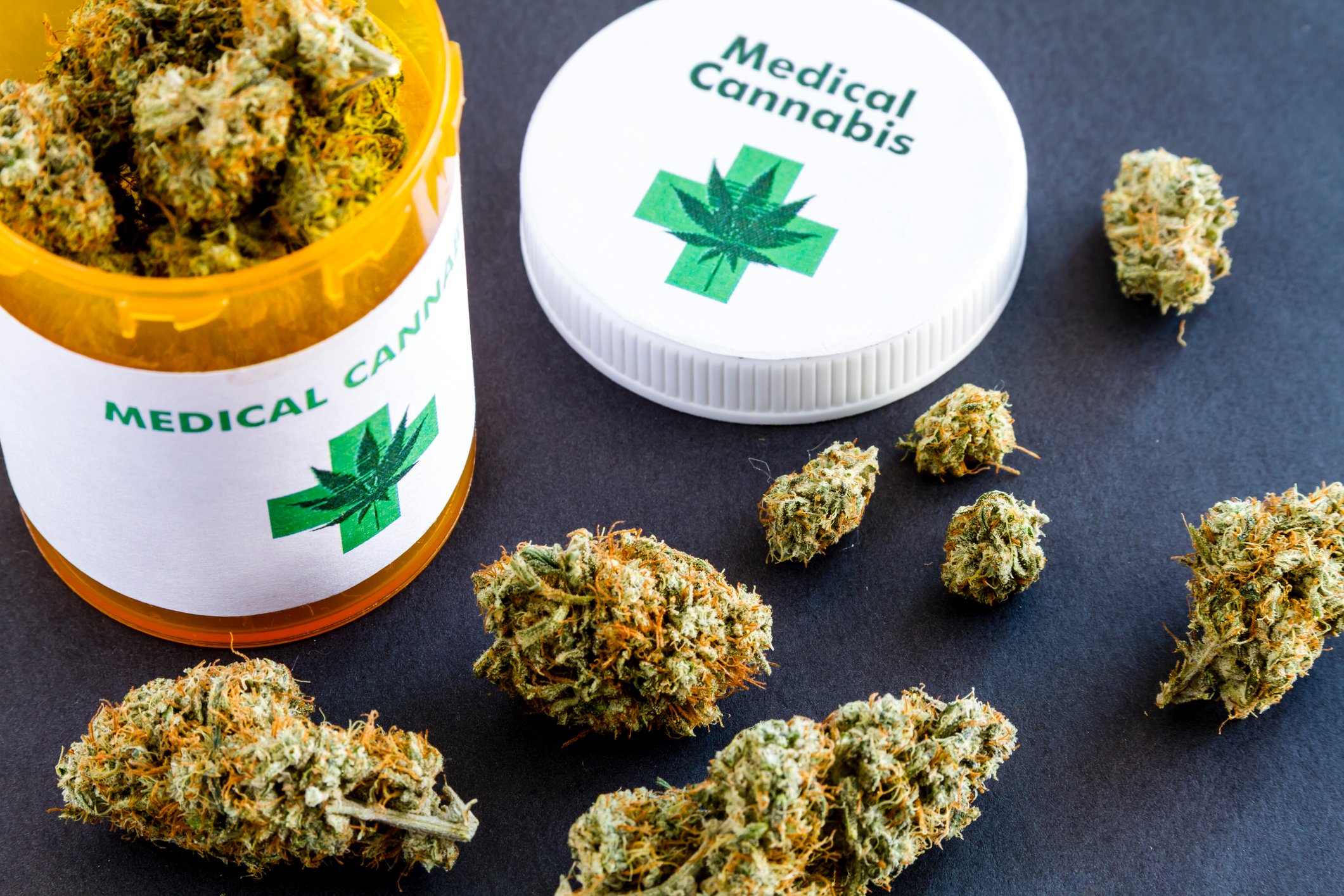Voters in nine states will decide whether to approve recreational or medical marijuana in November. Will cannabis get legalized and, if so, what could it mean for the national market for marijuana?

Image source: Getty Images.
Recreational marijuana states in play
Five states will decide on recreational marijuana next month: Arizona, California, Maine, Massachusetts, and Nevada.
Recent polls suggest that cannabis initiatives have the best chance at passing in California, Maine, and Nevada.
California was at the forefront of legalizing medical marijuana in the 1990s. It's already one of the world's biggest areas for marijuana production, and in November, residents appear ready to OK cannabis for recreational use.
Proposition 64, or the Adult Use of Marijuana Act, allows people over 21 to legally grow up to six plants and possess up to 1 ounce of flower and/or up to 8 grams of concentrate for personal use. If passed, the proposal would allow the licensing of commercial cannabis production and retail sales. A September poll conducted by USC Dornsife and the Los Angeles Times showed 58% of Californians favored passing Proposition 64, while only 34% said that they'd vote against the ballot proposal; 8% of respondents were undecided.
It's less certain that Maine residents would support marijuana next month, but polls suggest that cannabis will get the OK in the state. Question 1 would allow people over 21 to have 2.5 ounces of cannabis acquired from a licensed facility and to cultivate up to six plants. A University of New Hampshire Survey Center poll found that 53% of people polled support Question 1 and 38% oppose it.
In Nevada, momentum to legalize recreational marijuana is building at the right time. Polls conducted by Suffolk University in August indicated that 48% of people surveyed favor legalization; however, that support jumped to 57% in September. Currently, only 33% of people polled oppose the ballot measure.
Cannabis legalization may face a tougher time in Massachusetts and Arizona. In Massachusetts, proposals would allow adults 21 and older to possess up to an ounce of cannabis, keep up to 10 ounces of marijuana at home, and grow up to six plants. The proposal has been met with significant pushback from legislators, and a poll conducted by WBZ-TV finds that while 53% of people support approval, 40% oppose it. That's a higher level of opposition than in other states and it suggests legalization efforts may fall short. Similarly, polls in Arizona peg opposition to legalization at 40%.
Image source: Getty Images.
Medical marijuana states in play
Support is typically higher for medical marijuana legalization than it is for recreational marijuana legislation. According to research by Gallup, 58% of Americans support marijuana legalization, and according to CBS News, 84% of Americans support medical marijuana legalization. Support could be due to the fact that medical marijuana laws have already been passed in 25 states.
Arkansas, Florida, Montana, and North Dakota will try to bring that number to 29 in November.
Polls point to a toss-up in Arkansas, where there are two different pro medical marijuana questions on the ballot.
The Arkansas Medical Cannabis Act would allow for no more than one nonprofit cannabis care center per 20 pharmacies, or roughly 38 dispensaries statewide, and the Arkansas Medical Marijuana Amendment would allow up to eight grow facilities and up to 40 for-profit dispensaries statewide.
Neither of the two ballot measures is garnering slam-dunk support in polls. According to a poll by Talk Business & Politics and Hendrix College, 53% of respondents are against the Arkansas Medical Cannabis Act and 43% are against the Arkansas Medical Marijuana Amendment. That's not overly convincing, especially since the state voted 51% to 49% against medical marijuana legislation in 2012.
Florida voters failed to surpass the 60% threshold necessary to change the state constitution and legalize medical marijuana in 2014, but this time around, it appears that medical marijuana advocates will get the votes they need. According to the Florida Chamber of Commerce, 73% of Floridians support Amendment 2 while only 22% oppose it.
In Montana, voters will vote on Issue 24 (I-182), which would remove a three-patient per-doctor limit, and in North Dakota, voters will decide the fate of the North Dakota Compassionate Care Act, which would allow for the possession of up to 3 ounces of marijuana for qualifying conditions such as AIDS, cancer, epilepsy, and glaucoma.
What's ahead
Marijuana market research firm ArcView estimates that the legal cannabis market was valued at $5.4 billion in 2015 and that 30% annual growth per year could make this market worth $22 billion in 2020. Hitting that target, however, will depend a great deal on how marijuana does at the ballot box in November.






